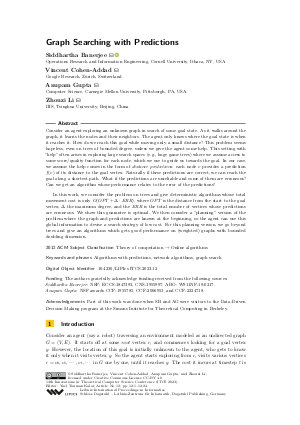LIPIcs.ITCS.2023.12.pdf
- Filesize: 0.93 MB
- 24 pages

 Creative Commons Attribution 4.0 International license
Creative Commons Attribution 4.0 International license














Feedback for Dagstuhl Publishing